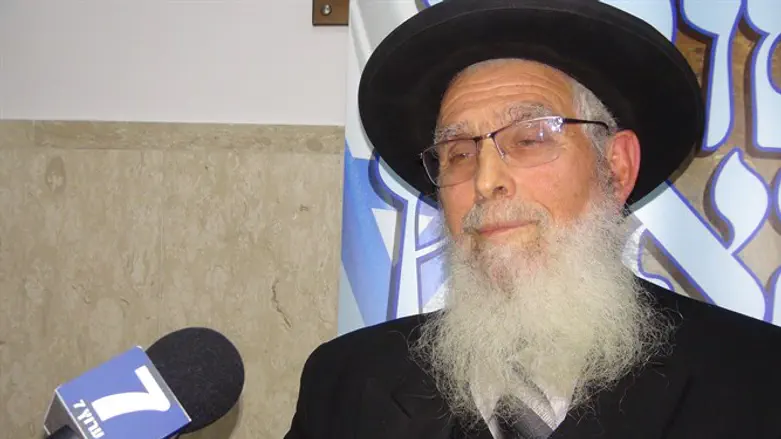
A proposal by the Tzohar rabbinical organization to privatize kashrut supervision in Israel would be a disaster for Israel and Judaism if implemented, warned one of the leading Religious Zionist rabbis.
Rabbi David Stav, chairman of the Modern Orthodox outreach group Tzohar, pushed for the privatization of kashrut supervision during a recent hoteliers' conference.
Presently, the Chief Rabbinate is the only body authorized to verify the kashrut status of food products and restaurants in Israel. Independent religious courts, like the Badatz Eidah Haharedit or Badatz Yoreh Deah, operate under the Rabbinate’s authority and with its approval.
Some business owners say the costs imposed by the Rabbinate for supervision are excessively high, and that the stringencies in kashrut observance required are beyond what their customers demand.
In recent years these complaints have prompted campaigns to end the Rabbinate’s monopoly on authorizing kashrut certification boards, effectively permitting a free market in kosher supervision.
Advocates say the move would help cut reduce the cost of supervision and encourage restaurants which lack any kosher certification to obtain one.
But opponents have argued that the lack of a universal minimum standard or oversight would lead to a deterioration of kashrut observance, the spread of fictitious certifiers, confusion amongst religious diners over which certifications adhere to traditional standards, and ultimately leave the country even more religiously polarized.
One of those opponents is Rabbi Yaakov Ariel, Chief Rabbi of Ramat Gan and a leading figure in the Religious Zionist world.
Rabbi Ariel spoke with Arutz Sheva on Wednesday, warning that Tzohar’s campaign against universal kashrut standards would lead to “disaster”.
“I hope everyone will come to their senses and understand that this would be a disaster for kashrut, a disaster for the Rabbinate, a disaster for Judaism, and a disaster for Torah and the Jewish people.”
Despite his opposition to the move, Rabbi Ariel stressed that he does not believe Tzohar has any malicious intent.
“I don’t believe they intend to do this. I’m not a member of Tzohar, but if the organization does really go ahead and offer private kashrut [certification], I’d see that as the destruction of Judaism.”
“The idea of private kashrut certification should rejected out of hand. There is the state kashrut of the Chief Rabbinate. If there are problems with it, they should be solved; but everything needs to be done in conjunction with the Chief Rabbinate. We don’t want there to be differences from place to place.”
The long term effects of Tzohar’s proposal, said Rabbi Ariel, would likely include a steady decline in the quality of kashrut supervision.
“Today Tzohar is offered a less stringent standard for kashrut supervision; tomorrow someone else will over an even less stringent one, and so on and so forth until there is a total disintegration of the system. We can’t have [a situation where] everyone can give kashrut certification. There is one state kashrut authority. The Chief Rabbinate is the only address.”